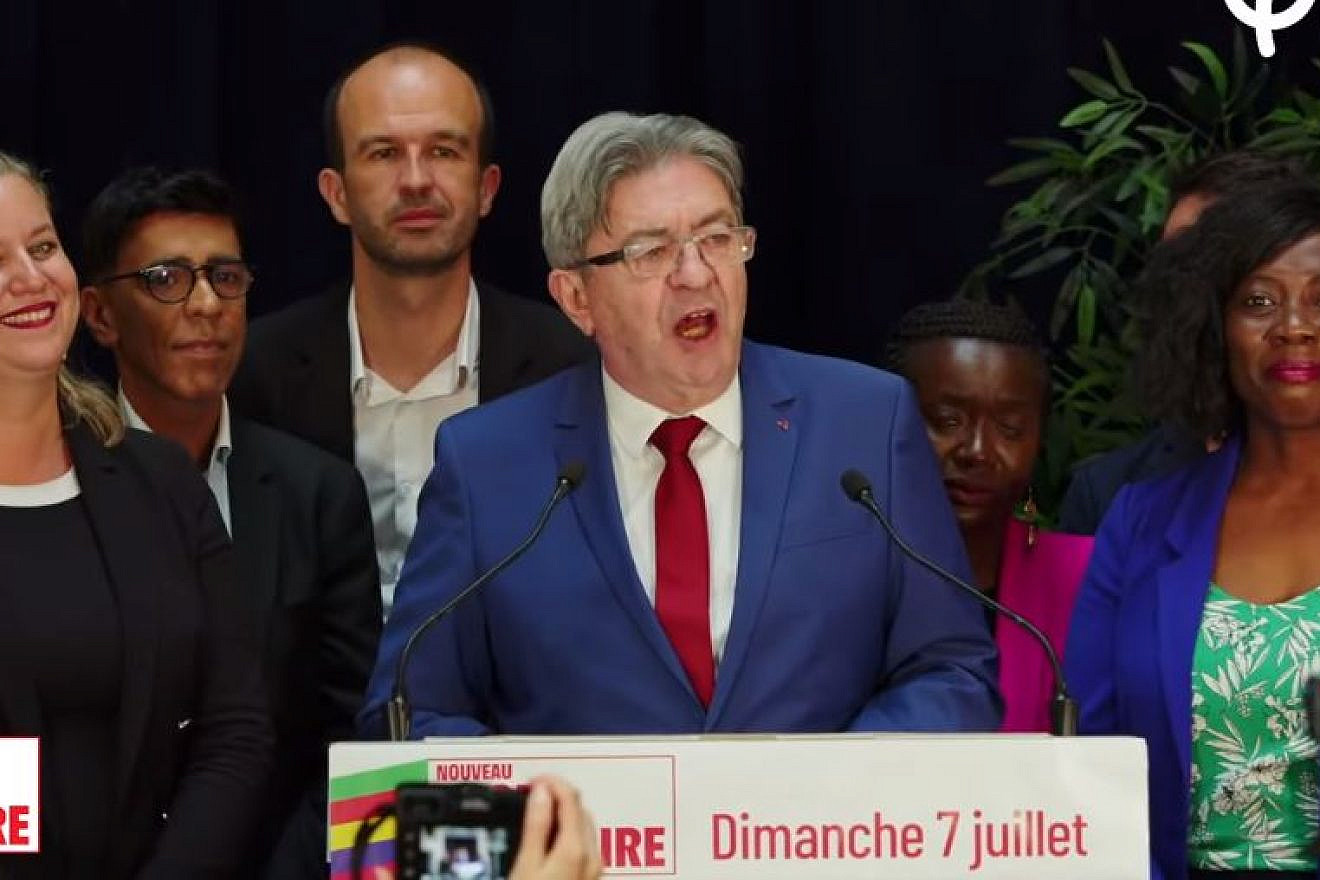Jean-Luc Mélenchon, leader of France Unbowed (La France Insoumise), a key member of the victorious left-wing New Popular Front (NPF) coalition in Sunday’s National Assembly elections, said his government would recognize the “State of Palestine” as soon as possible.
Mélenchon made his remarks to a large gathering of supporters following the win.
Recognizing a Palestinian state has been a key campaign promise of New Popular Front. At a rally in May, Mélenchon said, “France must recognize the Palestinian state now.”
Other France Unbowed members reiterated that promise. Mathilde Panot, a France Unbowed candidate re-elected in the Val-de-Marne, said, “Within the next two weeks, we will recognize the State of Palestine.”
The New Popular Front has condemned Israel’s Gaza operation as “genocide” and Mélanchon has been accused of antisemitism. He has refused to call Hamas a terrorist group.
When France reported a 300% increase in antisemitic attacks in the first three months of 2024, Mélanchon said French Jew-hatred was “residual.”
Two weeks after the Oct. 7 attack, Mélanchon accused Yaël Braun-Pivet, the Jewish president of the National Assembly, then paying a solidarity visit to Israel, of “camping out in Tel Aviv to encourage the massacre.”
Prominent French Jews decried Mélanchon’s victory.
Public intellectual Bernard-Henri Lévy tweeted on Sunday: “The left has once again fallen prey to the infamous Mélenchon. Surrounding him now are some of the new faces of antisemitism. A chilling moment indeed.”
Writing in news magazine Causeur on Monday, non-Jewish French journalist Céline Pina questioned whether there were “still red lines in politics now that antisemitism has become a value assumed by the left.
“If you were Jewish, in France, today, would you get yourself together in the event that the situation forces you to leave? I would,” she wrote.
“Well, if the very fact that we can ask ourselves this question does not speak to our collective moral decline, I do not know what will,” Pina added.
The far-left won the National Assembly elections in large part due to agreements struck with French President Emmanuel Macron and his centrist Renaissance party, who wanted to stop the rise of the right-wing National Rally, which was on the threshold of a major victory following the first-round results on June 30.
Many French Jews reported feeling betrayed by Macron for siding with what they considered an antisemitic party.


























